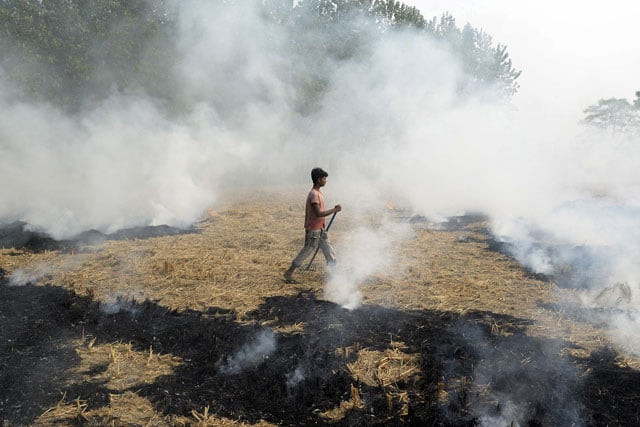UN declares access to a clean environment a human right
Lawyers say legislation could help them build arguments in cases involving environment, human rights

The UN Human Rights Council on Friday recognised access to a clean and healthy environment as a fundamental right, formally adding its weight to the global fight against climate hardship and climate change.
The vote passed comfortably, despite criticism in the lead-up from some countries, notably the United States and Britain.
The resolution, first discussed in the 1990s, is not legally binding but has the potential to shape global standards. Lawyers involved in climate litigation say it could help them build arguments in cases involving the environment and human rights.
The text, proposed by Costa Rica, the Maldives, Morocco, Slovenia and Switzerland, was passed with 43 votes in favour and 4 abstentions from Russia, India, China and Japan, prompting a rare burst of applause in the Geneva forum.
Also read: Pollution likely to cut 9 years of life expectancy of 40% of Indians
Britain, which was among the critics of the proposal in recent negotiations, voted in favour in a surprise, last-minute move. The United States did not vote since it is not currently a member of the 47-member Council.
Costa Rica's ambassador Catalina Devandas Aguilar said the decision will "send a powerful message to communities around the world struggling with climate hardship that they are not alone". Critics had raised various objections, saying the Council was not the appropriate forum and citing legal concerns.
Environmental defenders had said Britain's earlier critical stance was undermining its pledges ahead of the global climate conference that it is hosting Glasgow next month.
John Knox, former UN Special Rapporteur on human rights and the environment, said ahead of the vote that those who had criticised the resolution were "on the wrong side of history".
The World Health Organisation estimates that some 13.7 million deaths a year, or around 24.3% of the global total, are due to environmental risks such as air pollution and chemical exposure.
Separately, a vote is expected on Friday on a proposal led by the Marshall Islands to create a new Special Rapporteur on climate change.



















COMMENTS
Comments are moderated and generally will be posted if they are on-topic and not abusive.
For more information, please see our Comments FAQ